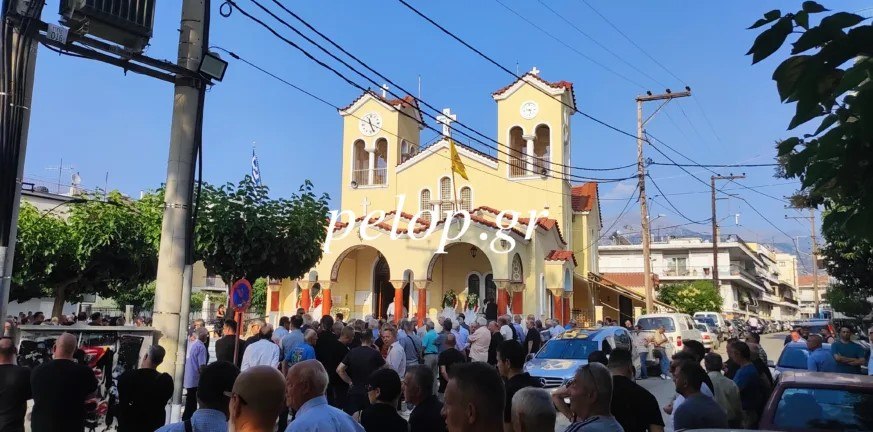« Human stories last forever »: came out « The City of Victory » by Salman Rushdie

« The City of Victory » – the novel, with which Salman Rushdie makes a literary return to his native India, has been published in Bulgarian, Kumibri Publishing House reported. The translation is by Nadezhda Rose and the cover is the work of the artist Stefan Kasarov.
This is an epic story sustained in the style of ancient Indian epic, with a message for all readers: human power is fleeting, but human stories last forever, the publishing house noted.
The City of Victory came out in English in early 2023. It was written before the assassination assassination in 2022, after which the writer remains blind with the right eye and a crippled left hand.
Salman Rushdie – to experience your own death
Salman Rushdie (77) He won worldwide fame with the allegorical masterpiece « Born at Midnight » (1981), for which he received several honors, incl. The prestigious Booker Award. The book has won twice the so -called. Booker of all Bukars, in 1993 and 2008, on the occasion of the 25th and 40th anniversary of the award, and in 2012 was adapted for a large screen as a collaboration between Canada, the United Kingdom, the United States and India under the directing of Deep Mehta. In 1988, Rushdie’s Satanic stanzas novel caused violent reactions in the Islamic world, the book was banned in many countries, and the Iranian Ayatolach declared the author a resident and appointed a large monetary award for his murder.
After the attack, Rushdie creates the autobiographical essay « Knife: Think after attempted murder ». For the writer, this memoir is a way « to answer violence with art ».
Salman Rushdie who proved that the pen was more powerful than the knife
Salman Rushdie’s style, mixing historical facts and real events with mythology and fantasy, is often defined as magical realism, and the topic of mutual penetrations, contradictions and misunderstandings in the intertwining of the world of the East and the world of the West passes as a major thread through all his works.
« Knife: Reflection After Salman Rushdie’s Attempt » comes out in Bulgarian
Dnevnik publishes an excerpt from the City of Victory provided by Hummingbird.
From the « City of Victory » by Salman Rushdie
I
On the last day of her life, when she was two hundred forty -seven years old, the blind poet, a miracle -worker and prophet Pampa Campana finished her huge epic for Bisnag, stuffed him in a clay pot, sealed with wax, and buried him in the middle of the ruined royal palace as a message to the future. Four and a half centuries later, we found this pot and read the immortal masterpiece for the first time, entitled « Jayaparajaya », « Victory and Defeat », written in Sanskrit and as long as « Ramayana » – twenty -four thousand verses.
So we learned the secrets of the empire that Pampa Campana had hidden for more than a hundred and sixty thousand days from the annals of history. We knew only the ruins of the empire, but in the ruins was the memory of its history, suffering from the past time, the imperfections of memory and lies of the next generations. When we read Pamp Campana’s book, the past recovered, the Bisnag empire reborn into its true appearance – with its female warriors and mountains of gold, with its generosity and pettiness, with its weaknesses and strengths.
For the first time, we learned the whole story of the kingdom, which began and ended with a stake and with a cut head. Here is presented the history of this empire, but with a simpler language by both a modern author, neither a scientist, no poet, but the most ordinary sweet-backer, who offers his story of entertainment and perhaps the instruction of today’s readers: old and young, educated and uninvited wisdom, and seeking fun, southern southern, southern. Gentle and narrow -minded, men and women, the inhabitants of the merciful and the middle world, aristocratic shoots and plebeians, honorable people and crooks, charlatans, foreigners, humble sages and selfish fools.
Bisnaga’s history began in the fourteenth century, in the southern part of a country now called India, Bharat, Hindustan. The old king, with whose trembling head began everything, was not exactly a monarch, but rather a pitying like a ruler, which invariably emerged between the decline of a great kingdom and the rise of another. His name was Campila from the small kingdom of Campili – Raya Campila, where Paradise is the local pronunciation of the word raja, ruler.
This second -class paradise remained on its third -class throne only as much as to build a fourth -class fortress on the banks of the Pampa River, to deploy a fifth -class temple in it, and to cut off several pompous inscriptions on a rocky slope, but then troops came from the north to deal with it. The ensuing battle was one -sided and so insignificant that no one bothered to give it a name. After the northern army defeated Raya Campila’s army and most of his warriors died, the unfortunate ruler was captured and his crown -deprived head – cut off.
They filled her with straw and sent her north to the delight of the Delhi sultan. There was nothing special in the nameless battle or in the cut head. At that time, the battles were something quite ordinary, so few bothered to give them names, and the severed bars crossed our glorious side wide and longing for the joy of one or the other ruler. The sultan in the northern capital had a solid collection of such.
Strangely enough, events from those who change the course of history have come after the insignificant battle. The epic tells that the women of the small kingdom, most of whom widowed after the nameless battle who left the fourth -row fortress after last time sacrificed gifts in the five -row temple, crossed the river, overcoming the storms, kept in the West.
Seriously, without yelling, they said goodbye to each other and steadily seized among the fiery tongues. No screams were heard when the flames covered their flesh and the stench of death spread in the air. They burned silent in the midst of the fire. Pump Campana saw all this with her eyes. It was as if the universe was sending her a message: open her eyes, breathe and learn.
She was nine -year -old and watched everything tearful, clutched with all her might in the hand of her mother, who did not shed a single tear, while all the women she knew, walked into the fire, sat down or remained straight in the raging element and the ears and their mouths, the old man, the old man, the old man, the old man, the old woman, the old man, the old woman, the old man, the old man, the old man, the old woman, the old woman, the old woman, the old man, the old man, the old man, the old man, the old man, the old man, the old man, the old woman, the old man. The girl who hated her father – a warrior died, and the wife who was ashamed of her husband because he did not give her life to the battlefield, and the woman with the beautiful voice, and the other with the dreaded giggles, and the one who was weak as a stick and the other, fat as a watermelon. They stepped into the flames and the smell of their death of Pamp began to raise her, and then, to her horror, her own mother, Radha Campana, gently released her hand and slowly, but steadily stepped into the deadly stake without even saying goodbye to her daughter.
For the rest of her life, a pump campaign, which bore the name of the river, on whose shores all this happened, felt in its nostrils the smell of burning mother’s flesh. The fire tilted with a fragrant sandalwood, sprinkled with a lot of cloves, garlic, kim seeds and cinnamon sticks, as if they were cooking female flesh as a spicy dish to serve a delicious feast in front of the victorious Sultan, but the aromas, the turmeric and the little ones An unimaginable dish – women who burned alive – and made her even more unbearable. By the end of her days, Pump Campana did not taste meat and couldn’t stand in the kitchen where they were cooked. All the meat meals awakened memories of her mother, and when she saw someone eating the flesh of dead animals, she turned her eyes.
Pamp’s father died young, long before the nameless battle, so her mother was not a recent widowed women. The Arjuna Campana died so long ago that Pamp did not remember his face at all. He knew about him only what Radha Campana had told her – that he was a good man, a beloved potter of the residents of the city of Campili, who also encouraged his wife to learn how to make pots, so after his death, she got into his craft and replaced him with dignity.
Radha, in turn, guided the handles of the small pamp on the potter’s wheel and the girl was already able to make pots and buy, and she learned an important lesson – that there was no such thing as « male work ». Pampa Campana believed that she would spend her life – making beautiful pots of the potter’s wheel next to her mother. But with this dream, it was already over. Her mother released her daughter’s hand and left her to welcome her fate alone.
Pamp has long tried to suggest that her sociable mother just joined the others, because friendship with other women has always been paramount to her. You were inserted that the wall of winding tongues was a curtain behind which women gather to chat, and very soon they would come out of the flames unharmed – well, maybe slightly tattered and the smell of a kitchen that would soon weaved. And then Pamp and her mother would go home.










